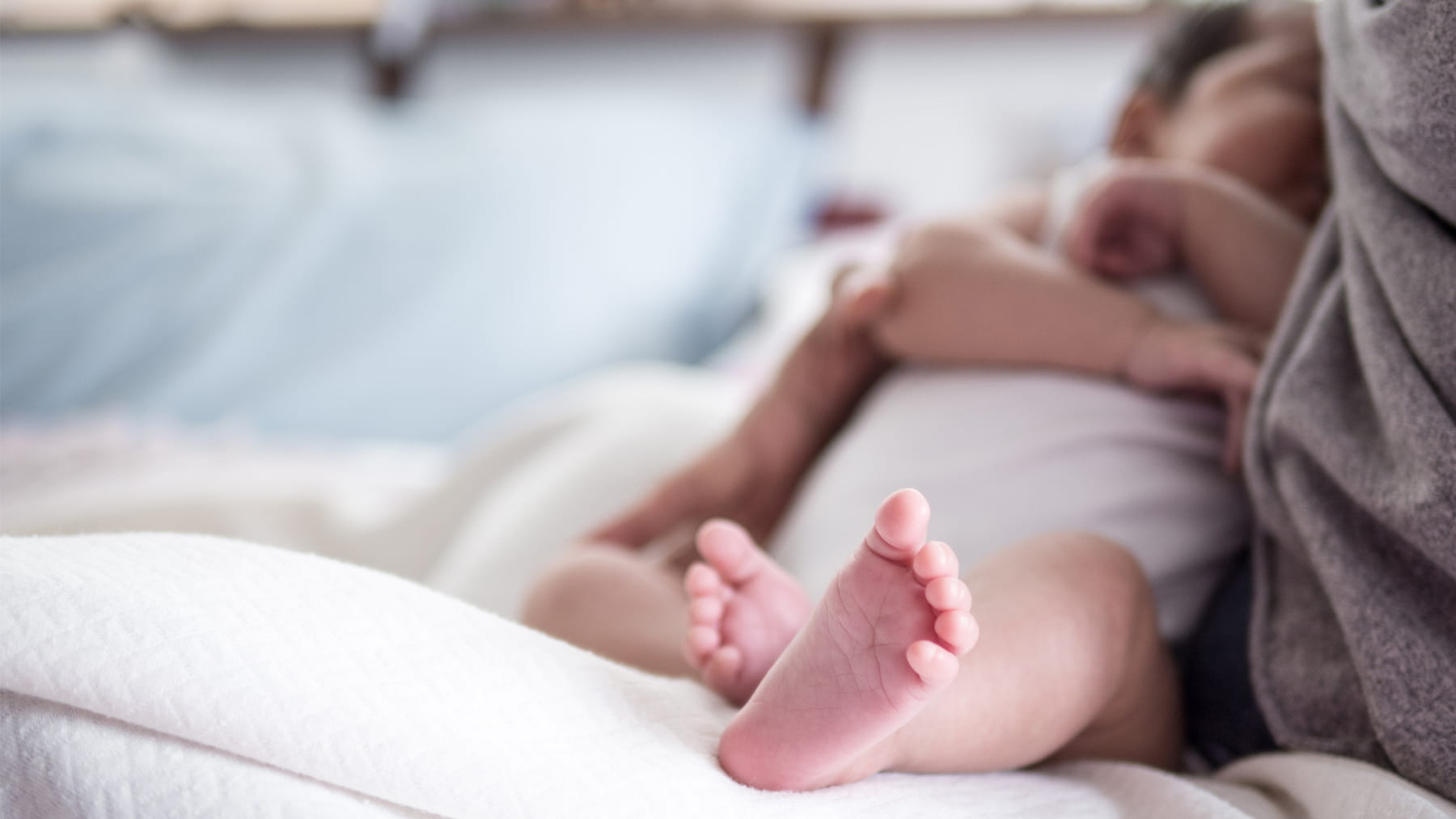Why this breastfeeding doctor got the COVID-19 vaccine

The CDC now recommends that all people 12 years and older, including those who are breastfeeding, pregnant or may become pregnant, receive the COVID-19 vaccine. As what we know about COVID-19 evolves, so could the information contained in this story. Find our most recent COVID-19 blog posts here.
Until the COVID-19 vaccine arrived, Megan Conroy, MD, lived with the worry of bringing the virus home to her newborn and husband. She had good cause for concern: In the middle of the pandemic, she returned from maternity leave to run a COVID-19 intensive care unit at The Ohio State University Wexner Medical Center.
“Early on, it truly felt inevitable that we would all be infected,” said Conroy, a pulmonologist and critical care specialist and assistant professor in The Ohio State University College of Medicine.
But she and her family stayed healthy, and as her son reached 9 months old, Conroy was presented with the opportunity to be among Ohio State’s first group of frontline health care workers to receive Pfizer’s new COVID-19 vaccine.
That left her with a decision to make: Would she feel safe receiving the vaccine even as she continued to breastfeed?
It’s a question many breastfeeding health care workers are asking themselves, and it’s one that nursing moms will be faced with as the vaccine becomes more widely available in the coming months.
They can’t base their decisions on data, because so far there is none. Lactating women were excluded from clinical trials of COVID-19 vaccines—much to the dismay of organizations including the Academy of Breastfeeding Medicine, which has urged vaccine manufacturers to include lactating participants in future research studies to “protect…breastfeeding people through research, not from research.”
Breastfeeding moms might also find themselves on the receiving end of mixed or unclear messages. As of December 2020, the Centers for Disease Control and Prevention says people who are breastfeeding “may choose to be vaccinated,” with the recommendation that they consult their primary care providers. But many primary care doctors don’t have training in breastfeeding and may err on the side of skipping the vaccine, said Kristina Lehman, MD, an Ohio State internist, pediatrician and breastfeeding medicine specialist.
“The cautious answer tends to be ‘no,’ even when we don’t know the answer,” Lehman said. “That’s why these other resources are so important.”
When it comes to breastfeeding safety questions, Lehman often refers her patients and fellow physicians to resources such as the Academy of Breastfeeding Medicine and the Infant Risk Center, both of which consider the COVID-19 vaccine’s risk to a breastfeeding child to be low.
She also encourages patients to consider the basic science of vaccines. Take the COVID-19 vaccine: It’s not a live virus. It’s messenger RNA (mRNA) that mirrors the genetic code of coronavirus spike proteins to stimulate the recipient’s immune system to develop antibodies to COVID-19. For it to affect a breastfeeding child, it would have to travel from the recipient’s muscle into their blood into their breast milk and be absorbed by the feeding child’s stomach. All of that means it’s highly unlikely the baby will absorb any of the vaccine and be harmed.
The CDC says that with the exception of smallpox and yellow fever vaccines, all vaccines are safe for breastfeeding women and their children—including vaccines with live viruses, such as chickenpox and measles, mumps and rubella. And mRNA vaccines, it says, “are not thought to be a risk to the breastfeeding infant.”
“The basic science is what’s reassuring to me,” Lehman said. “I’m breastfeeding my child, and I will get the vaccine. I’d never ask my patients to do something I wouldn’t.”
Conroy reached out to Lehman—who’s her son’s pediatrician—and during a video appointment she and her husband discussed their concerns about the vaccine and her desire to continue breastfeeding for the health benefits it provided their baby. After that conversation, and after consulting available resources and a large network of lactating physicians on the Facebook group Dr. MILK, Conroy was confident about her decision.
“I feel that there isn’t even much theoretical risk,” she said, “and there is a very real, likely benefit to the baby—both in continuing to have breast milk through his first few years of life, and in the probable benefit of breast milk with antibodies specifically against the coronavirus.”
On Dec. 16, she received the vaccine. She felt a bit tired and sore for about 36 hours, and after that everything was back to normal.
“Baby’s doing great,” she said. “Nothing concerning in any way.”




